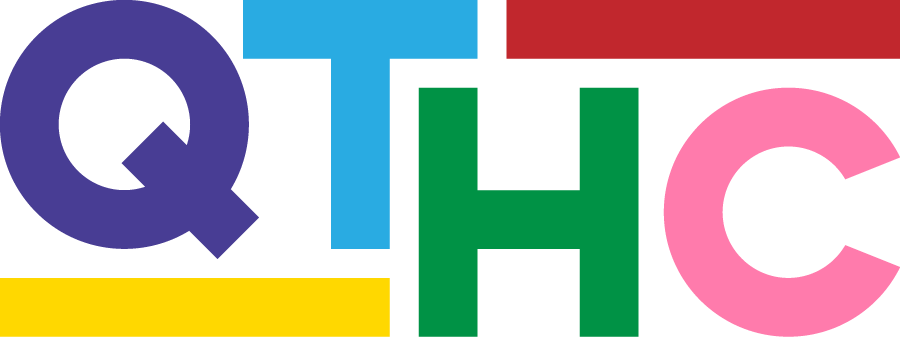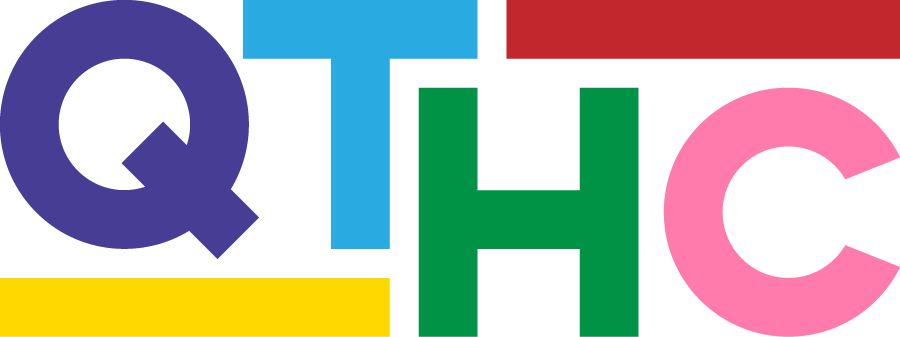The Intergenerational Mentorship Program is no longer accepting mentors and mentees, as the program is now closed. Click here to learn about the Do You Mind? program stream for 2021/2022.
Thank you for your interest in the 2SLGBTQ+ Intergenerational Mentorship Program - we are excited to facilitate a positive and meaningful connection between yourself and a mentor / mentee. Given the impacts of COVID-19, we recognize that we as 2SLGBTQ+ people are experiencing a challenging time that has left many of us feeling isolated and disconnected from our communities. As a means to uplift our community and promote social connection, the purpose of this pilot program is to
Create intergenerational connections within Alberta’s 2SLGBTQ+ community;
Foster a mutual transfer of knowledge and resources between mentors and mentees;
Address isolation and loneliness that can impact mental health; and
Provide a safe, non-judgmental, and inclusive environment that is welcoming and promotes a sense of belonging
Our hope is that through this program you are able to recognize the value in establishing intergenerational relationships with 2SLGBTQ+ community members beyond typical romantic and sexual connections. 2SLGBTQ+ community members hold a diverse and varying range of generational knowledge and lived experiences. This is your opportunity to share and learn from each other in an empathetic and caring environment!
Program Description
The 2SLGBTQ+ Intergenerational Mentorship program is a 6-week pilot project that was created in response to the unique challenges presented by the COVID-19 pandemic to 2SLGBTQ+ community members. This program was envisioned by a small group of 2SLGBTQ+ Do You Mind? project participants and Community-Based Research Centre (CBRC) staff with the main goal of improving mental health and combating social isolation by connecting 2SLGBTQ+ individuals across generations and geographic locations. The Do You Mind? project was initiated this year by CBRC in partnership with YouthCO in Vancouver, the EMHC in Edmonton and The Youth Project in Halifax, and with funding from the Public Health Agency of Canada’s Mental Health Innovation Fund.
The 2SLGBTQ+ Intergenerational Mentorship program aims to facilitate intergenerational connections, foster transfer of knowledge and resources between mentors and mentees, and provide a safe and inclusive environment that is affirming, reinforces cultural identity, and fosters a sense of belonging.
This program is for adults in Alberta who identify as part of the 2SLGBTQ+ community and who would benefit from sharing knowledge and experience with another community member in a mentor-mentee connection. This time-limited program is focused on the following three primary areas of mentorship in a 2SLGBTQ+ context:
Service Navigation
This mentorship category includes having lived experience or network connections that will be able to contribute to accessing safe and affirming services. This category is about being able to share details beyond looking at a list of “2SLGBTQIA+” services and hearing first-hand guidance, experiences, or stories related to service navigation. This can range from finding a barbershop to get a haircut, what local cafes to support, or finding a family doctor. This category is not about being able to pinpoint the exact service that a mentee might be looking for, but providing support to make the process of finding a service or navigating a system less intimidating.
Dating and Relationships
This category is about being able to have conversations about the wild world of dating! What are good dating activities? What should your bio on a dating app say? How to navigate different types of intimacy? These questions, and many more, can be challenging to face alone. Although often friendships can help, sometimes having someone that has more experience in this realm can be helpful to make the whole concept less overwhelming. Mentors in this category should be able to have open-minded conversations about dating and relationships.
Coming Out
The concept of ‘coming out’ looks different based on the person, the circumstance, the environment, and so many other factors! However, it is still a challenge that many individuals grapple with and can feel isolating, scary, or unnecessary. This mentorship category is about helping to find ways, big and small, to affirm identity. This doesn’t have to be central to the act of ‘coming out’ but is more about providing support and compassion for the experience of being someone in the 2SLGBTQ+ community, whether anyone else knows or not. Mentors in this category should be comfortable sharing personal stories about their own identity or journey, and feel confident in affirming identity in creative ways.
Role Descriptions
Mentors and mentees may be of any age between 18 and 75 and it is not an expectation that a mentor be older than a mentee. Our selection and matching process will consider areas of interest in mentorship along with identity, culture, and experiential factors where possible in order to facilitate connections that have the potential to last beyond the program. Participants from all walks of life are encouraged to apply!
Mentee Role
The role of the mentee is to receive guidance and support from a mentor through the sharing of information and lived experience. Though this project aims to address and combat social isolation and improve mental health for members of the 2SLGBTQ+ community, the relationship is not geared towards mental health counselling or crisis intervention, and thus the mentee should not expect trained or licenced mentors. The mentee should expect a non-judgemental, safer space in which to share their experiences and request support as needed. The mentee and mentor alike will be vigilant to prevent personal biases, beliefs, and choices (ex. sexual practices, transitioning, pursuit of healthcare, risky behaviour, career choices, relationship choices, response to life circumstances) from negatively impacting the mentorship relationship or experience. Likewise, each will be aware of their privileges and respect the differences in the other’s identities and experience. The mentorship strategies used during sessions might include supportive listening, problem exploration, brainstorming solutions, goal setting, and boundary-setting. Mentees are asked to attend an introductory meetup, followed by six 1-hour virtual mentorship sessions with the mentor with whom they are matched.
Mentor Role
The role of the mentor is to provide guidance and support to the mentee through the sharing of information and lived experience. Though this project was envisioned to address and combat social isolation and improve mental health for members of the 2SLGBTQ+ community, the role of the mentor is not that of a counsellor or mental health therapist, nor does it require any professional training. The mentor will strive to minimize power dynamics and to create an atmosphere in which the mentee feels safe and empowered to share their experiences and request support as needed. The mentor will be aware of their position of influence and be vigilant to prevent personal biases, beliefs, and choices (ex. sexual practices, transitioning, pursuit of healthcare, risky behaviour, career choices, relationship choices, response to life circumstances) from negatively impacting the experience of the mentee. Likewise, both mentor and mentee will be aware of their privileges and respect the differences in the other’s identities and experience. The mentor will use strategies such as supportive listening, problem exploration, brainstorming solutions, goal setting, and boundary-setting strategies with mentees with a focus on their strengths and potential for growth. Mentors will be required to attend an orientation session, an introductory group meet-up, and commit to six 1- hour virtual mentorship sessions with the mentee with whom they are matched. The orientation session will clearly define the boundaries and expectations of the relationship with the mentee as well as how to handle concerns such as confidentiality, unexpected events or disclosures, and accessing staff support.
Time Commitment
Mentors and Mentees are expected to attend all group facilitated meetings (orientation, introduction, & wrap-up). Paired participants are required to meet for one hour per week for the 6 week pilot period for mentorship activities.
The below schedule is an estimate of time commitments and may be subject to change.
Remuneration
Mentors and Mentees will each be given a $20 UberEats gift card for each required hour of mentorship activities ($20 x 6 weeks = $120 total). If UberEats is not available in your area, an alternative will be arranged with staff supporting the Pilot. UberEats gift cards will be provided to participants via email.
Sign Up
Click one of the buttons to sign up to become a mentor or mentee now! Deadline for Signup is December 26, 2020.








